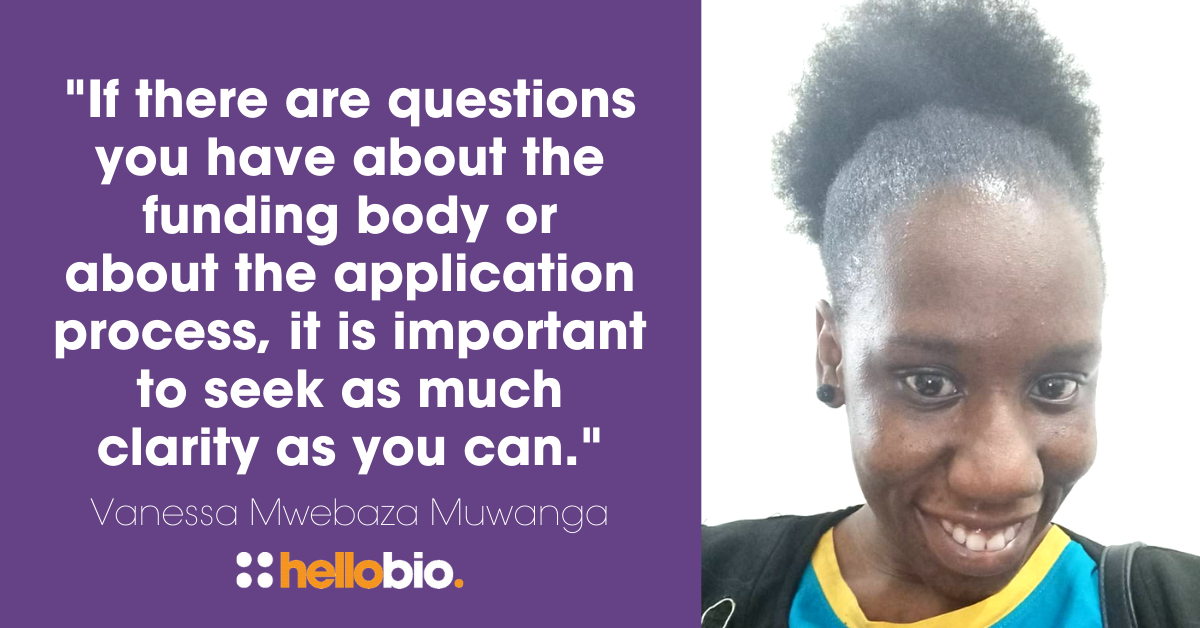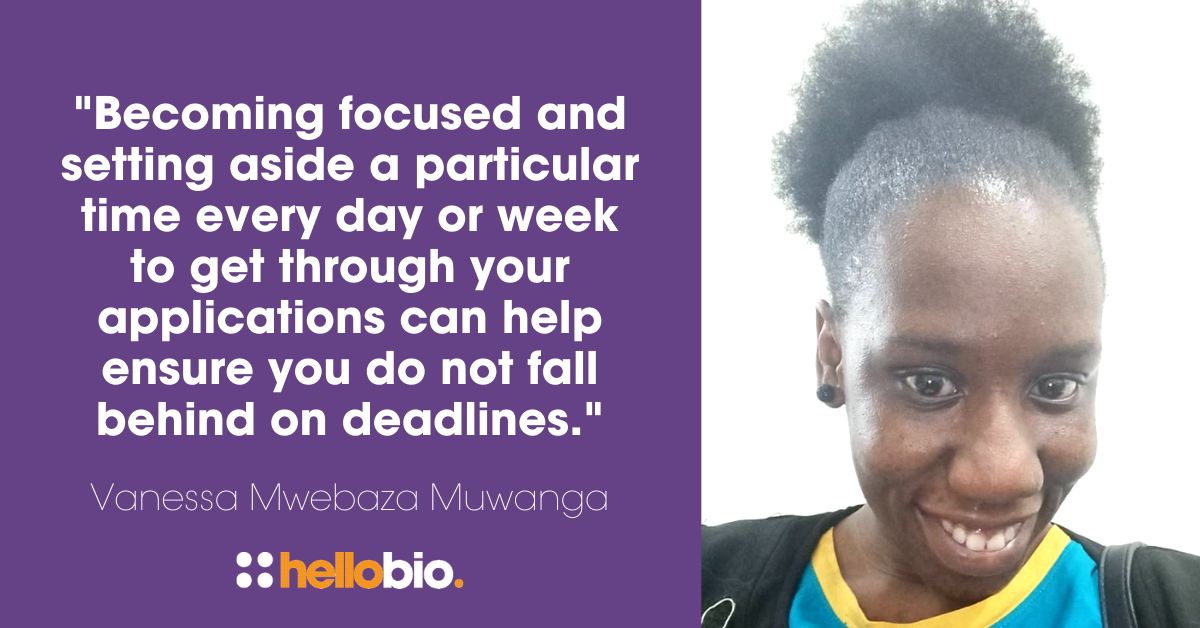Graduate School Funding: Advice for Science Students
Graduate school is a dream and aspiration for so many. It is a way to gain new skills, experience a different education system, move to a new city or even country for that matter and most importantly, progress to attain a career that you are very passionate about. With all those as wonderful and very valid reasons to enrol for a graduate program, anyone that has embarked on this journey understands that your financial situation and access to funds plays a significant role in being able to make it through grad school smoothly or even attempting to go forward with applications.
The PhD program I eventually got accepted into came with a project that provides me with a stipend that runs for the entire duration of my PhD. I am however allowed to hold supplementary funding especially to be able to handle my tuition and registration fees as an international student. I spent the first year of my PhD going through several funding applications and I am here to share some valuable lessons I learnt that I believe can help other people on this journey.
Do your research
Find out what you are eligible for, when the application period for certain grants or fellowships is open, the necessary documentation you need and the kind of financial support these funding bodies provide. It would be good to know if the scholarship/bursary/fellowship is renewable and what the terms and conditions are.
All these factors can help you gauge whether making an application is even worth it to begin with, but also help you to prepare and pace yourself adequately, especially if you plan on making more than one application within a specific time frame.
Get help
Fellow graduate students are definitely the first set of people you should be speaking to when you want to find out what you can apply for and how best to go about it. You will be submitting references for nearly every application you are making. One or two of these people should be able to read through some of your applications and give you guidance on what edits to make. My supervisor helped me a lot when it came to this. I believe my writing even got better as a result of going through this process.
If there are questions you have about the funding body or about the application process, it is also important to seek as much clarity as you can from the organization itself. There are usually email addresses and phone numbers provided to help you deal with any hiccups you might have during the application process.
Usually, organizations will put up names of people who have received awards in the past. In case you know someone, or some of those people happen to go to the same university as you, it would be really helpful to reach out to them and get some first-hand information on how they made a successful application.
Pace yourself
After you have established what you are eligible to apply for and you have the deadlines locked down, you really need to be able to sit down and come up with a plan that will allow you to successfully structure your application and prepare all the supporting documentation you need to submit before the deadline. It is so important to pace yourself, especially when you have more than one application to make within the year or during a specific time period.
Getting through any funding application is quite time consuming. Exhaustion and burnout can easily occur, especially when you have already have a lot to juggle as a graduate student. This is where becoming focused and setting aside a particular time every day or every week to get through your applications can help you ensure that you do not fall behind on your application deadlines. I am a morning person and would set aside 2 or 3 hours every day, before the day gets busy, to sit down and write with minimal distractions.
Your mindset matters
When you make each application, make sure you are as enthusiastic and determined as can be. You should not even entertain thoughts of failure after all the energy you have put in. It is very important to remain optimistic because after all, there is a chance of you making it. It is also vital however, to remember that every single funding post made available is competitive because there will be so many other sharp, determined, and qualified individuals making these applications too. That being said, you should put your all into every application and find ways to come to terms with the fact that you may not always be successful. That's why it's good to make several applications, to increase your odds of success.
Another aspect that I believe is key when it comes to applications is that you should see them as an opportunity to learn and gain insights into what funding bodies look out for so that you can see how to improve your odds of applying to the same funding body, or to others, in the future. If at first you do not succeed, try and try again.
It can also be a wonderful way to continuously improve on your writing, and your ability to draw budgets. When several applications are put in, some organizations do not give you any feedback while others will give generalized feedback to all candidates. As a big believer in personal improvement, I feel it is important to request personalized feedback so that you can constantly improve on your applications for the future.
___________________________________________
Vanessa Mwebaza Muwanga is a second year PhD candidate and international student carrying out her research project on blood transcriptomic signatures as potential biomarkers for tuberculosis diagnostic development under the South African Tuberculosis Initiative (SATVI) at the University of Cape Town.
Vanessa has a background in health sciences attaining a bachelor’s degree in Biomedical Sciences from Makerere University in the Uganda and a Master’s degree from the University of Aberdeen in the UK. She has 3 years’ experience working for private research organizations and laboratories.
Connect with Vanessa:
- Twitter: @muwitheninja
- LinkedIn: Vanessa Mwebaza Muwanga
- Instagram: the_unconventional_scientist
- ResearchGate: Vanessa Mwebaza Muwanga
____________________________________________
If you enjoyed this article, why not check out the other resources available on our blog. We are passionate about supporting life scientists including early career life scientists and PhD students - with really low-priced reagents and biochemicals, early career scientist grants, and resources to help with both personal and professional development. We know how tough it is - so we hope you find these helpful!
More General Support for Life Scientists
For advice on writing papers, dissertations, presenting at conferences, wellbeing, PhD support, networking and lots more, we have a huge range of articles to help - just click below:
Save up to 50% on our high purity reagents...
When you get to the stage of planning your experiments, don't forget that we offer a range of low-cost, high-purity agonists, antagonists, inhibitors, activators, antibodies and fluorescent tools (yes - they really are around half the price of other suppliers!) You can use our Quick Multi-Search Tool to search for lots of products in one go, and the range includes:
- Enzyme inhibitors and activators
- Chemogenetic ligands
- Ion channel modulators
- GPCR & ionotropic receptor ligands
- Cell biology reagents & biochemicals
Technical resources
Try our Molarity Calculator: a quick and easy way to calculate the mass, volume or concentration required for making a solution.
Try our Dilution Calculator: an easy way to work out how to dilute stock solutions of known concentrations
And finally, don't forget to check back in with our blog regularly for more PhD focused content! If there’s something you’d love to contribute to the community, whether that’s an interview or article, drop us a line at hello@hellobio.com
---


















